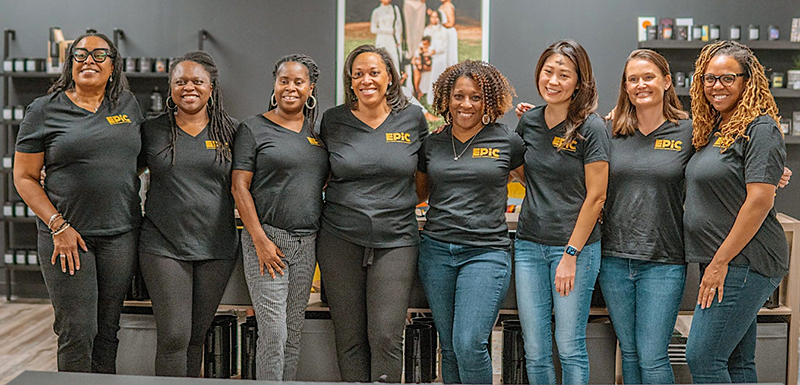By Freda Freeman
Correspondent
Black women and mothers have been on the front line fighting for change for hundreds of years. From Harriet Tubman to Sojourner Truth to Fannie Lou Hammer to Shirley Chisholm to Angela Davis to countless others, they have had to fight for basic human rights all their lives. And they are still fighting.
“Even though we feel like we did our part, we showed up, and we voted the right way, even though we have been out here fighting, we simply don’t have the luxury of retreating; we simply don’t have the luxury of not fighting,” said longtime mental and behavioral health advocate Michelle Laws, of Durham. “And we have carried and shouldered the burden of making America do right; that has been our burden for a long time, making it pass just policies that impact our families and communities,”
Not only are Black women fighting to move ahead, but they are also fighting not to lose ground as they see their civil rights being eroded. Facing the Trump administration’s budget cuts to mental health, education, housing, the environment, and numerous diversity and equity programs, Black mothers are working to lessen the impact of those cuts on Black families and children.
“Now is the time as moms that we need to talk to women in sororities, in our church groups; we need to talk about ways we can organize and be active because the work doesn’t stop after an election,” said Yolanda Taylor. “We have to make sure the people we put in office understand what the community needs are. Wherever we are gathered as Black women, we should be intentional about using those gatherings for opportunities for advocacy and social action because they are trying to take us back, and we don’t want to go back.”
Taylor, who has her own law firm in Rolesville, combines her legal practice with her advocacy arm, the Center for Community Law and Equity, where she fights for fair housing and public education.
Taylor said it is clear housing is not a priority for the Trump administration. “Every local jurisdiction – including cities like Raleigh, Durham, Chapel Hill – any local city that receives HUD dollars, they still have the duty to affirm fair housing,” she said.
Education advocate Jovonia Lewis is a past member of the Durham Public Schools Board of Education and founder and executive director of Empowered Parents in Community. EPiC-NC is a parent collective that works for equity in education by teaching parents how to navigate the school system.
“The path that I’m clearing is for my children and children that look like my children,” Lewis said. “We listen, we educate, and we advocate. We listen to the needs of the community, the concerns of parents about their children in the school system, in particular Black parents.”
With the Trump administration’s looming budget cuts to the U.S. Department of Education, Lewis fears the most vulnerable children will be left behind. This is why she continues to hold the state to its obligation to provide a “sound basic education” for all students, as mandated by the North Carolina Supreme Court in the Leandro case in 1997.
“The cuts that are coming now to the Department of Education, they don’t want to look at the disaggregated data; they don’t want to create equity for all children. They’re continuing to take funding out of public schools for our most vulnerable children, and that’s why it’s even more important the work that we do; that parents and community members are aware of what’s happening, to stand up against it so that we don’t begin to backtrack all the work that we’ve done,” Lewis said.
Lewis encourages mothers who are working to improve their communities to replenish themselves and not give up. They stressed the importance of rest as resistance.
“Moms wear many hats – the nurturers, caregivers, educators, that quiet storm and fierce advocate – but it’s really important that mamas know to protect their peace, to self-care, replenish from all that they give because this fight is not for the weak or the weary, and it is about the endurance,” she said.
“We celebrate all the moms and activists that are out there. We fix each other’s crown, we cry on each other’s shoulders, and we build each other up. That’s so important in a time like this because the attacks are coming in so many different ways. Continue to lean on each other and find community together.”

